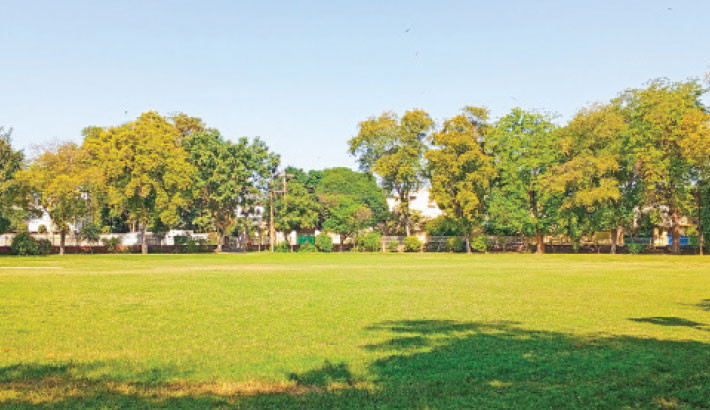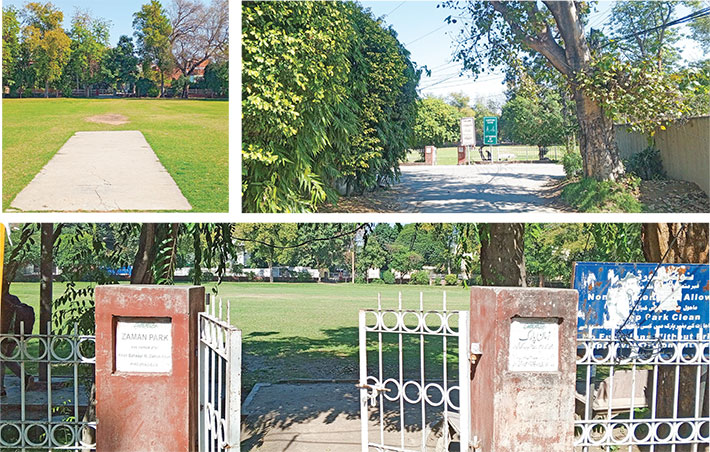A fading legacy
Imran Khan’s Zaman Park
Muhammad Jubair, Lahore
Published: 04 Mar 2025

When you’re in Lahore, just two words—“Zaman Park”—are enough to show the way. “Khan Sahaab ka Zaman Park,” a taxi driver responds with a knowing smile. For many, Zaman Park is synonymous with one man: Imran Khan.
To cricket enthusiasts, he is one of the greatest all-rounders of all time and the World Cup-winning captain of 1992. To others, he is a politician and philanthropist who served as Pakistan’s 19th prime minister from August 2018 to April 2022. He founded the political party Pakistan Tehreek-e-Insaf in 1996 and led it until 2023. Now in jail, Imran was arrested on corruption charges on May 9, 2023. His residence in Zaman Park is heavily guarded, surrounded by towering walls and security checkpoints.
Despite political controversies, many in Lahore continue to revere Imran Khan. Conversations about him are often filled with admiration—whether for his cricketing legacy or his political journey.

This reporter visited Zaman Park to explore the early days of the legendary all-rounder. However, the neighborhood today is a stark contrast to its past. Once a vibrant hub where young cricketers honed their skills, Zaman Park is now dominated by luxurious houses belonging to Lahore’s elite. The open spaces where aspiring athletes once played have largely disappeared.
A few children were seen playing marbles in a quiet and nearly empty ground, surrounded by green trees and park benches. In the center stood a concrete cricket wicket. Standing beside it, one could almost hear the echoes of leather meeting willow—memories of a time when this ground was alive with young cricketers dreaming of making it big. Once, this locality wasn’t just a place; it was a symbol of Pakistan’s cricketing heritage.
For those who remember its golden days, Zaman Park’s transformation is bittersweet. While it remains prestigious, the raw passion for cricket that once defined it has faded. The sound of bat and ball has been replaced by silence, broken only by the murmurs of security guards or the hum of passing luxury cars.
“Not many people play cricket here anymore. Most of the time, it’s empty,” a passerby remarked.
For the last eight decades, Zaman Park has been home to a large number of Jalandhar-based Pathans and has served as a breeding ground for cricket and hockey stars. Though
Imran Khan is Zaman Park’s most celebrated resident, but many of his elders, uncles, and cousins have also had distinguished careers as army generals, doctors, cricketers, and bureaucrats.
This small yet remarkable neighborhood has produced more than 45 first-class cricketers and several Test players. It is named after Khan Bahadur Mohammad Zaman Khan, who served as the Postmaster General of Punjab during British rule until 1943-44. In 1940, he built a seven-bedroom mansion here, marking the beginning of Zaman Park’s legacy.
Imran Khan was born into a family where cricket was more than just a sport—it was a way of life. Eight of his maternal first cousins played first-class cricket, two of whom, Javed Burki and Majid Khan, went on to captain Pakistan.
Ironically, in his early years, Imran was not particularly interested in cricket. He doubted his abilities and preferred other sports. However, at age eleven, his family moved to Zaman Park, a neighborhood renowned for producing first-class cricketers. Immersed in this extraordinary cricketing culture, Imran eventually found his calling.
Today, while Zaman Park still holds its prestige, much of what once made it special has faded. The cricketing nursery that shaped legends has given way to a quiet, elite enclave—where the past lingers, but the spirit of the game has largely disappeared.

